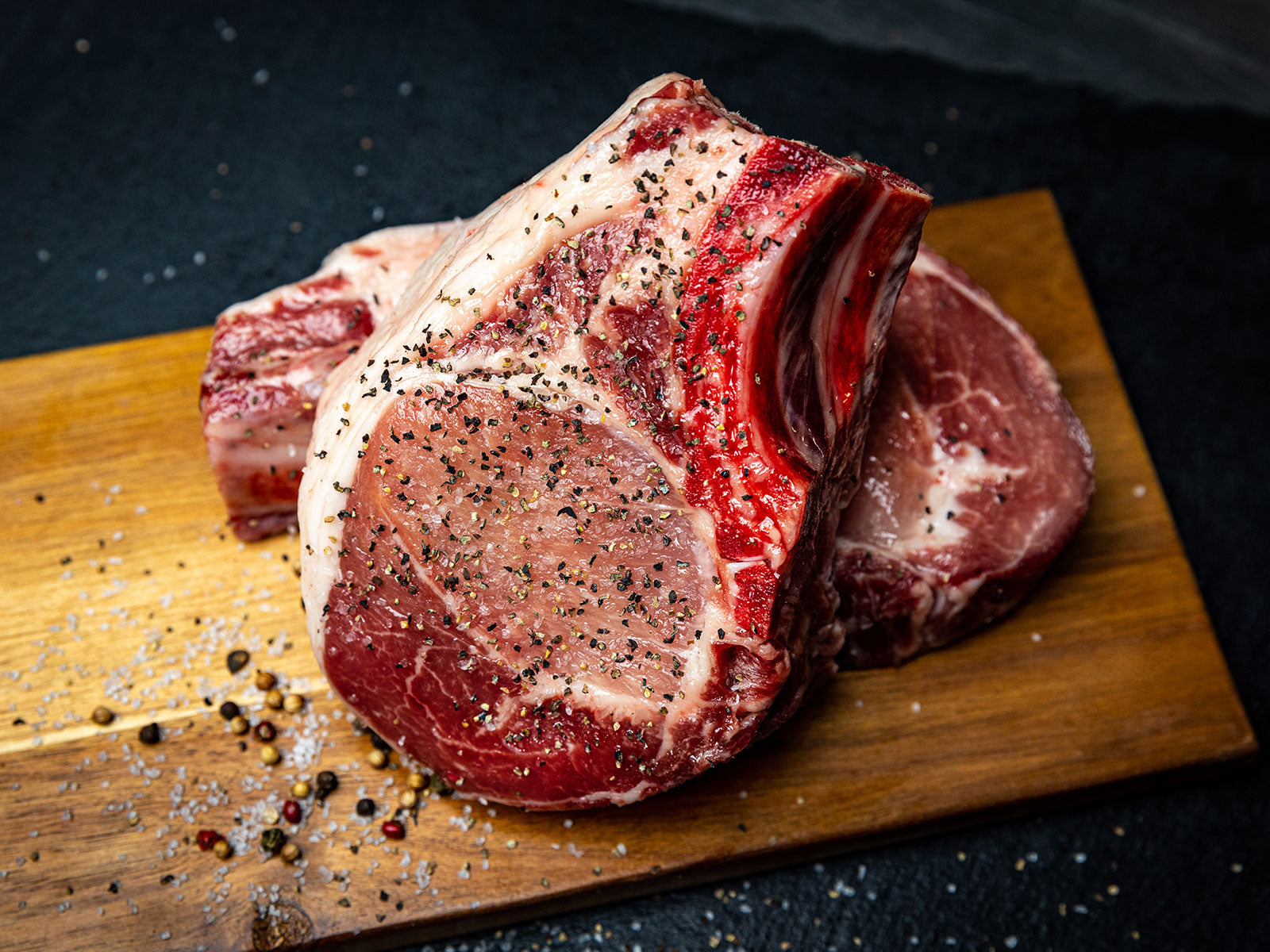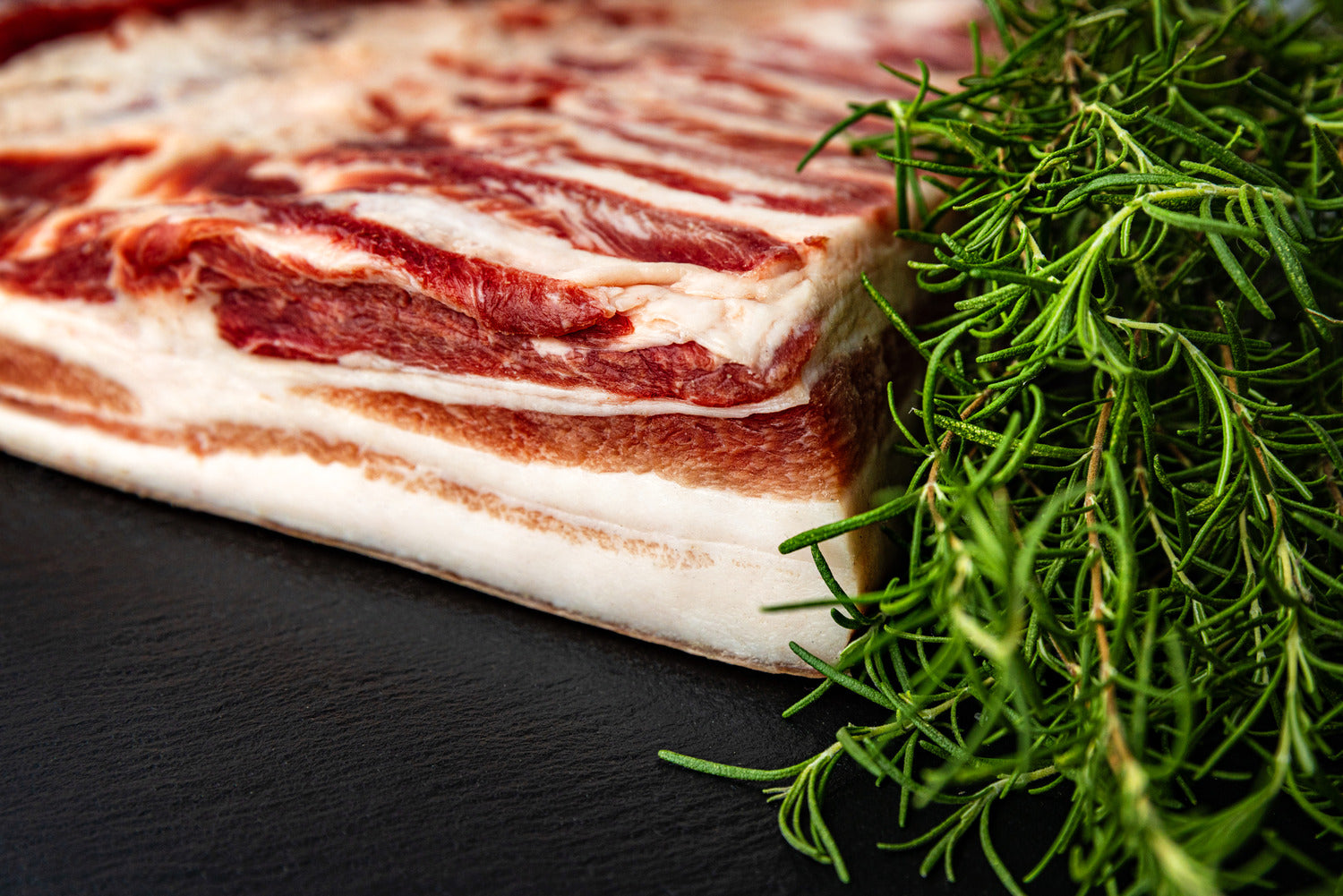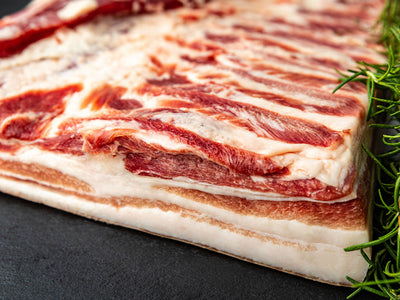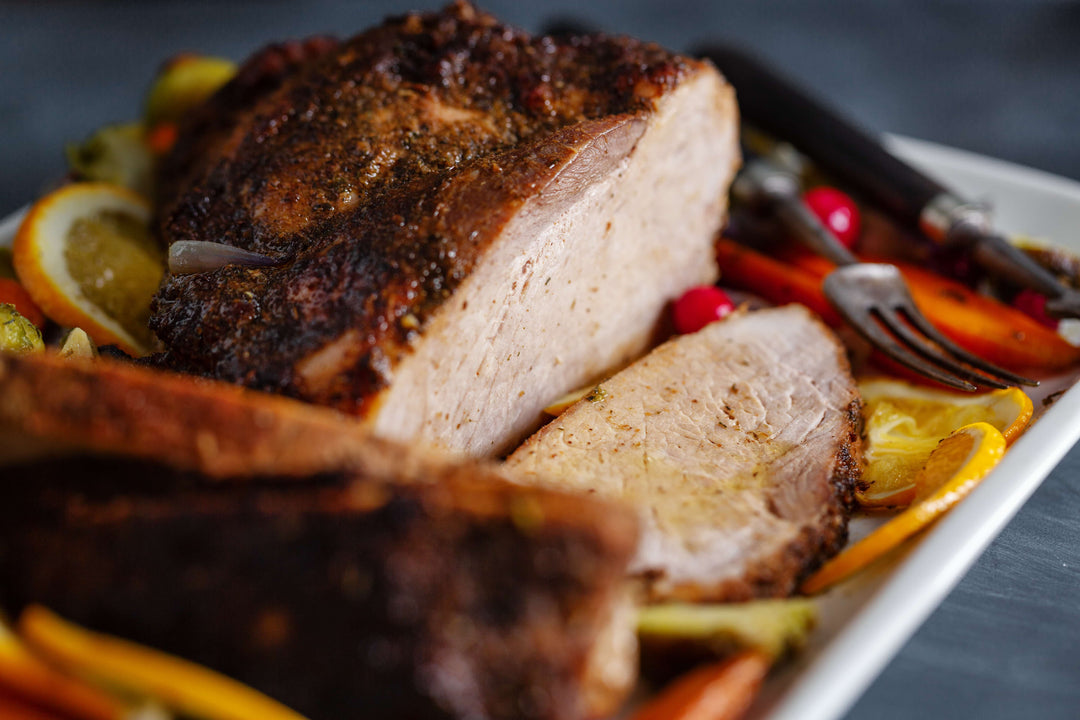Table Of Content
- What is Canadian Bacon?
- Nutrition Facts for Canadian Bacon
- Comparing Canadian Bacon to Traditional Bacon
- Health Benefits of Canadian Bacon
- Incorporating Canadian Bacon into Your Diet
- Canadian Bacon from Red Field Ranch
- Ready to Add Quality Canadian Bacon to Your Diet? Visit Red Field Ranch Today!
Canadian bacon is a tasty, lean option for anyone looking to enjoy bacon with fewer calories and less fat. With Canadian bacon nutrition information highlighting its benefits, Canadian bacon offers a healthier twist than traditional bacon. It’s great for breakfast dishes, sandwiches, or pizza toppings. Plus, it’s pre-cooked and easy to prepare, making it a convenient option for quick meals. In this guide, we’ll look at the nutrition facts for Canadian bacon and its health benefits so you can see why it’s a smart addition to a balanced diet.
What is Canadian Bacon?
Canadian bacon, often referred to as “back bacon,” is made from the lean loin of the pig, unlike traditional bacon, which comes from the fattier belly. This gives Canadian bacon a different texture and taste, similar to ham.
- Difference from Regular Bacon: Traditional bacon is streaky and high in fat, whereas Canadian bacon has a leaner, meatier texture. This makes it a healthier choice for those watching fat intake.
- Preparation: Canadian bacon is usually cured, cooked, and sliced. It can be pan-fried, grilled, or microwaved quickly, making it versatile for various recipes.
- Common Uses: Canadian bacon is often found in classic dishes like eggs Benedict, breakfast wraps, or as a tasty pizza topping.
Nutrition Facts for Canadian Bacon
The nutrition facts for Canadian bacon reveal that it’s a protein-packed option with relatively low calories and fat. Here’s a breakdown of the essential nutrients in Canadian bacon.
- Calories: With about 60-80 calories per serving (usually 2 slices), Canadian bacon is a low-calorie choice compared to traditional bacon.
- Protein: Canadian bacon packs around 10-12g of protein per serving, supporting muscle health and providing a satisfying energy source.
- Total Fat: At 2-3g of fat per serving, Canadian bacon is much lower in fat than traditional bacon, making it a great option for low-fat diets.
- Saturated Fat: Contains about 1g of saturated fat per serving, keeping it heart-friendly.
- Cholesterol: Each serving has roughly 15-20mg of cholesterol, a manageable amount for most diets.
- Carbohydrates: Canadian bacon is very low in carbs, typically around 0-1g per serving, making it a good fit for low-carb or keto diets.
- Sodium: Each serving contains approximately 500mg of sodium. While it adds flavor, those watching their sodium intake should keep portions moderate.
- Vitamins and Minerals:
- Vitamin B12: Important for energy and brain health.
- Iron: Supports oxygen transport in the blood.
- Zinc: Helps with immune function and healing.
Nutrient |
Amount Per Serving (2 slices) |
Benefit |
|
Calories |
60-80 |
Low-calorie choice |
|
Protein |
10-12g |
Supports muscle health |
|
Total Fat |
2-3g |
Lower fat content than traditional bacon |
|
Saturated Fat |
1g |
Heart-friendly, low in saturated fats |
|
Cholesterol |
15-20mg |
Moderate amount |
|
Carbohydrates |
0-1g |
Suitable for low-carb diets |
|
Sodium |
500mg |
Adds flavor, but watch portions |
|
Vitamin B12 |
Provides daily essential |
Boosts energy and brain health |
|
Iron |
Good source |
Supports blood oxygen transport |
|
Zinc |
Decent amount |
Helps immune health and healing |
Comparing Canadian Bacon to Traditional Bacon
Canadian bacon and traditional bacon each bring their flavor to the table, but Canadian bacon is generally the leaner choice when it comes to nutrition. Here’s a look at the main differences:
- Lower Fat Content: Canadian bacon is cut from the leaner pork loin, while traditional bacon comes from the fattier belly. This means Canadian bacon has far less fat.
- Fewer Calories: With fewer fat grams, Canadian bacon naturally has fewer calories, making it a great option for those looking to cut down on calorie intake without sacrificing taste.
- Higher Protein Content: Canadian bacon offers more protein per slice, ideal for those looking to boost protein intake for muscle support.
- Sodium Content: Canadian bacon contains sodium but is typically lower in sodium than heavily cured traditional bacon. Still, it's good to watch portions if you're monitoring salt intake.
Nutritional Comparison |
Canadian Bacon |
Traditional Bacon |
|
Calories |
60-80 per serving |
100-150 per serving |
|
Total Fat |
2-3g |
8-10g |
|
Saturated Fat |
1g |
3-4g |
|
Protein |
10-12g |
6g |
|
Sodium |
500mg |
700mg |
Health Benefits of Canadian Bacon
Canadian bacon is leaner and packed with nutrients that support a healthy lifestyle. Here are some key benefits:
- High Protein Content: Canadian bacon provides around 10-12g of protein per serving, which helps with muscle repair, growth, and keeping you fuller for longer.
- Low in Fat: With only 2-3g of fat per serving, Canadian bacon is a smart choice for reducing fat intake. This also makes it a heart-friendly option, especially when compared to traditional bacon.
- Rich in Essential Vitamins and Minerals:
- Vitamin B12: Boosts energy levels and supports brain health.
- Iron: Essential for oxygen transport in the blood, helping with energy and preventing fatigue.
- Zinc: Supports immune health and wound healing.
- Aids in Weight Management: Because Canadian bacon is lower in calories and fat, it fits well into a balanced diet for weight management. It allows you to enjoy a flavorful, satisfying protein without adding extra calories.
Health Benefit |
Benefit for Body |
|
High Protein |
Supports muscles and keeps you full |
|
Low Fat |
Heart-healthy and lower calorie choice |
|
Vitamin B12 |
Boosts energy and brain health |
|
Iron |
Helps transport oxygen, reducing fatigue |
|
Zinc |
Supports immune health |
Incorporating Canadian Bacon into Your Diet
- Serving Size and Portion Control: A healthy serving of Canadian bacon is usually around 2-3 slices (roughly 60-80 calories). This amount provides good protein without adding excessive calories or fat. Since Canadian bacon contains sodium, it’s best to balance it with other low-sodium foods.
- Balanced Meal Ideas:
- Breakfast Sandwich: Pair Canadian bacon with a whole-grain English muffin, a slice of avocado, and a cooked egg. This combination offers protein, fiber, and healthy fats.
- Salad Topper: Add diced Canadian bacon to a salad with leafy greens, cherry tomatoes, and a light vinaigrette for extra flavor and protein without added fat.
- Low-Carb Option: Wrap Canadian bacon around asparagus spears and bake. This makes a tasty, low-carb snack or side dish full of vitamins and low in calories.
- Mindful Eating: While Canadian bacon is leaner than traditional bacon, it still contains sodium. To enjoy it without overdoing the salt, pair it with fresh veggies, fruits, and whole grains. This balance helps create a nutritious meal that keeps sodium levels in check.
Canadian Bacon from Red Field Ranch
Red Field Ranch’s Canadian bacon stands out for its taste, nutrition, and commitment to ethical farming. Here’s what makes Red Field Ranch’s Canadian bacon unique:
- Top-Quality Production: Red Field Ranch produces its Canadian bacon from carefully sourced pork, ensuring that the final product is lean, flavorful, and rich in protein. Each serving provides a nutritional profile that meets high standards for Canadian bacon nutrition information.
- Superior Taste and Nutrition: Red Field Ranch’s Canadian bacon is made with minimal additives, unlike some store-bought options. This results in a more natural taste that reflects the quality of the ingredients, perfect for those seeking authentic, high-protein options.
- Sustainable Farming Practices: Red Field Ranch is dedicated to ethical and sustainable farming. Their approach ensures that each product is responsibly sourced, supporting the health of the consumer and the environment. This commitment to quality and sustainability is a core part of Redfield Ranch’s mission, making their Canadian bacon a thoughtful choice for health and taste.
With nutrition facts for Canadian bacon highlighting its high protein, low fat, and essential vitamins, Red Field Ranch’s Canadian bacon is an ideal addition to a balanced diet. Enjoy it as part of nutritious meals, knowing each bite supports personal health and responsible farming practices.
Ready to Add Quality Canadian Bacon to Your Diet? Visit Red Field Ranch Today!
If you want to enjoy the unique taste and nutritional benefits of Canadian bacon, Red Field Ranch has you covered. Visit the Red Field Ranch website to explore their range of high-quality Canadian bacon and other ethically sourced products. Discover the difference that premium ingredients and sustainable practices make in every bite. Order today and taste the quality!
Frequently Asked Questions
Yes, Canadian bacon is generally healthier than regular bacon. It’s lower in fat and calories while offering a higher protein content. This makes it a better choice for those looking to enjoy bacon flavor with fewer calories and less fat.
A typical serving of Canadian bacon (about 2-3 slices) contains around 60-80 calories. This makes it a low-calorie option compared to regular bacon, which is higher in calories and fat.
Yes, Canadian bacon is a great source of protein, with around 10-12 grams per serving. This makes it ideal for supporting muscle health and keeping you feeling satisfied.
While Canadian bacon does contain sodium, you can still enjoy it in moderation on a low-sodium diet. Pairing it with fresh, low-sodium foods like vegetables can help balance your meal.
Canadian bacon is pre-cooked, so you only need to heat it. For the best flavor, try pan-frying it lightly until it’s warmed through and slightly browned. You can also grill or microwave it for a quick, easy meal addition.




















